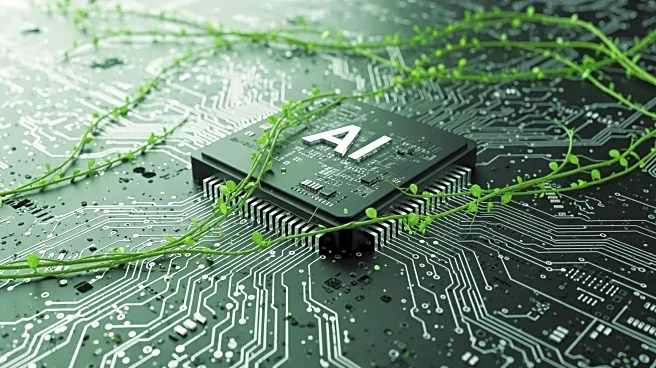What's Happening?
The semiconductor industry is experiencing unprecedented growth due to the demand for AI chips, but this expansion is raising significant environmental concerns. AI chip manufacturing is resource-intensive, leading to increased energy consumption, carbon
emissions, and electronic waste. The industry's demand for ultra-pure water and reliance on fossil fuels exacerbate these issues. Greenpeace research indicates that electricity consumption linked to AI hardware manufacturing increased by over 350% between 2023 and 2024, with projections suggesting further increases.
Why It's Important?
The environmental impact of AI chip manufacturing poses a challenge to global climate goals and the sustainability of natural resources. As AI technology continues to advance, the demand for specialized hardware is expected to grow, potentially leading to further environmental degradation. Addressing these concerns is crucial for ensuring the long-term viability of the tech industry and its contributions to economic growth. Companies that prioritize sustainable practices may gain competitive advantages and improve their brand image.
What's Next?
The semiconductor industry is likely to intensify efforts to reduce its environmental footprint through technological innovation and process optimization. Companies may invest in renewable energy sources, advanced water recycling systems, and energy-efficient chip designs. Regulatory pressures and market demands for sustainability could drive changes in industry practices and supply chain management. Stakeholders, including governments and businesses, will need to collaborate on solutions to mitigate the environmental impact of AI chip manufacturing.
Beyond the Headlines
The growing concerns about the environmental impact of AI chips highlight broader ethical and sustainability issues within the tech industry. As companies strive to balance innovation with environmental responsibility, there is a need for transparency and accountability in corporate practices. The integration of sustainable technologies in manufacturing processes could lead to long-term shifts in industry standards and consumer expectations, promoting a more sustainable and equitable global economy.
















